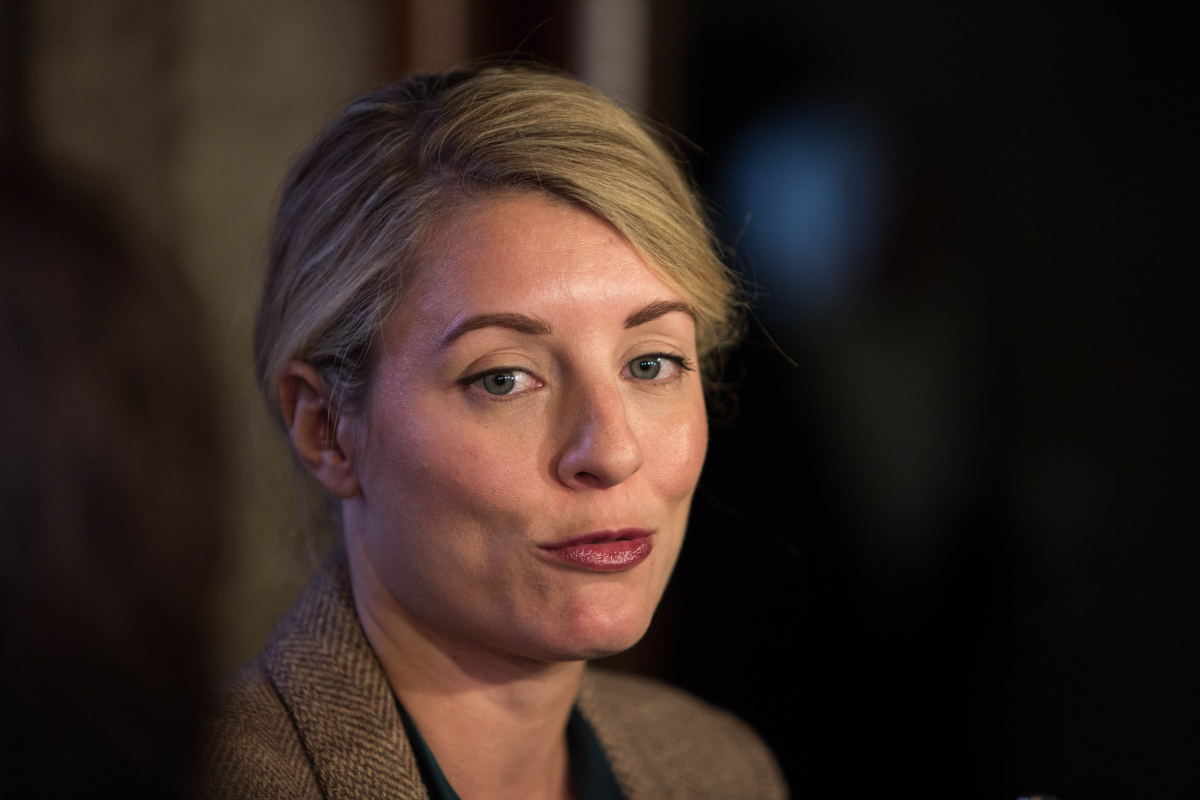Support strong Canadian climate journalism for 2025
Expectations were high when Heritage Minister Mélanie Joly declared “everything is on the table” early in 2016 as the government launched a review of support for Canadian content in a digital age.
Sadly, the Creative Canada Policy Framework released by the minister on Sept. 28 fails to meet those expectations. After almost two years of study and consultation, Joly has come up with only a few disappointing steps to support Canadian content.
FRIENDS of Canadian Broadcasting has given Mélanie Joly’s long-awaited Creative Canada Policy Framework a barely passing grade of C-. Here’s why.
The core challenge her policy failed to address is the crisis facing local media in Canada as a result of the exponential growth of internet advertising — which is siphoning revenue from Canadian media to foreign internet giants.

Ninety percent of internet advertising ends up in the pockets of American monopolies such as Google and Facebook.
Much-needed ad revenues to finance Canadian TV, including local news, are leaving Canada faster than snowbirds in February. At a time when many other countries are ending the free ride that US-based internet companies have enjoyed since their inception, Minister Joly has elected to remain on the sidelines.
Joly’s policy framework leans heavily on the goodwill of the private internet giant Netflix. The minister says Netflix has agreed to invest $500 million in Canadian production over the next five years.
In arriving at this deal, the Minister has apparently conceded that the Netflix investment will be made outside of the normal funding mechanisms through which Canadian broadcasters are required to channel their contributions — and it’s likely that Netflix won’t be obligated to define Canadian content under the same legal parameters as Canadian broadcasters.
For Netflix, this is a voluntary commitment. What’s to stop this California giant from reneging, and if it does, where does that leave Ms. Joly?
Indeed, the deal with Netflix raises more questions than it answers.
Any ‘deal’ involves give and take. What did the government of Canada give up in order to obtain Netflix’s commitment? Minister Joly has negotiated a deal with one company. What about other foreign internet giants? How does this level the playing field for Canadian media who continue to face financial obligations from which foreign media companies are exempt?
Consider the position of Bell Media, whose CraveTV service is required to collect and remit sales tax while its foreign competitor — Netflix – has structured itself to avoid this responsibility. Is that fair?
Foreign media giants such as Google and Netflix continue to enjoy significant and unfair competitive advantages over their Canadian competitors. To create a level playing field, Minister Joly should have:
- Required foreign media giants to collect sales taxes, such as HST;
- Directed large foreign companies to support the creation of Canadian content, rather that just solicit voluntary contributions;
- Mandated disclosure reports on key company metrics such as how much they invest in Canadian programs — using Canadian definitions.
Joly did announce funding to maintain the capacity of the Canadian Media Fund at current levels. Support from the CMF has declined in recent years because contributions from cable and other distribution companies have declined with their revenues and falling subscriber levels.
She also announced new funding to boost the export of Canadian programming.
But after almost two years of study and consultation, these are modest changes.
Local media are in crisis in Canada, and the impact on quality journalism is obvious. One in three journalism jobs have disappeared since 2010, and experts forecast that local TV stations in small and medium markets will soon shutter.
This calls for urgent action, but the minister’s policy is largely silent on the issue.
Using money saved from closing tax loopholes that favour foreign internet giants over Canadian media, the federal government could create new incentives and supports for local news, as is already the case for other Canadian content, in order to ensure its survival in small and medium sized markets across Canada.
In the age of Trump authoritarianism, it is more important than ever to tell our own stories in the world’s most powerful media. Minister Joly’s announcement is woefully inadequate to meet this challenge.
Ian Morrison is the spokesperson for FRIENDS of Canadian Broadcasting.




Comments
It's time we stopped so many Canadian dollars leave this country for the enrichment of foreign companies. If they are going to be here a big portion of their earnings should be invested here.